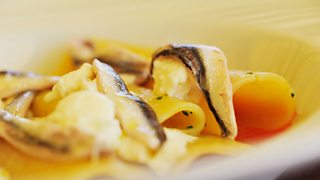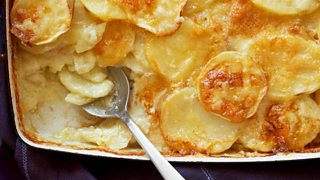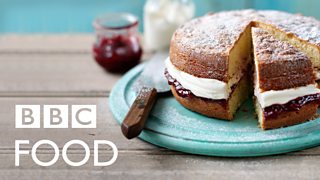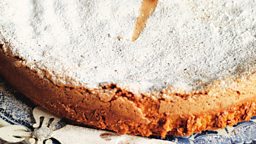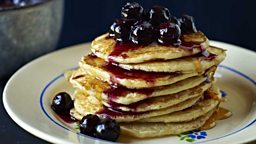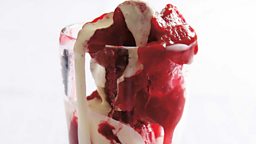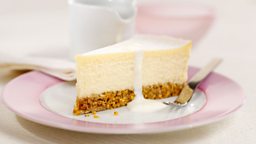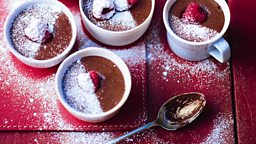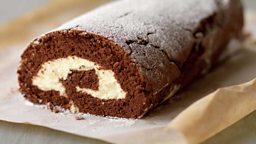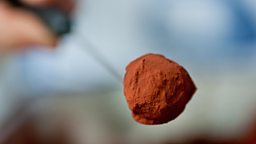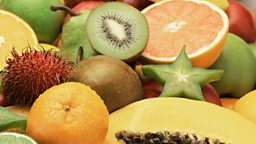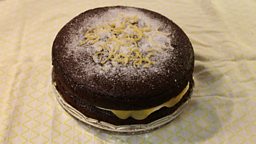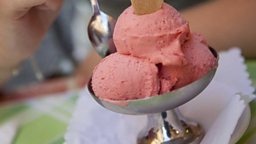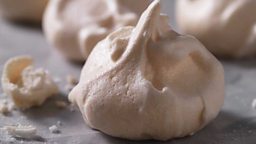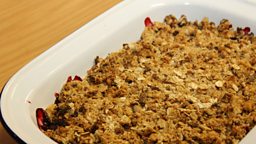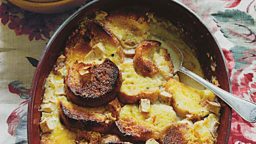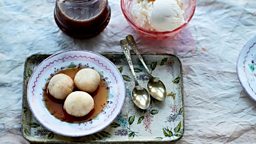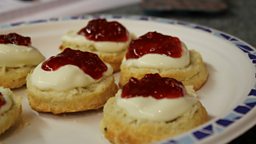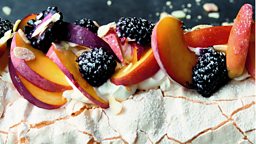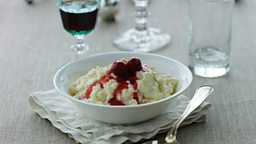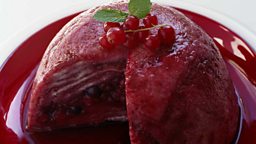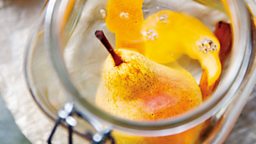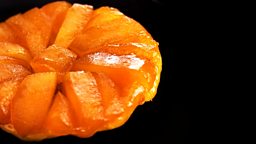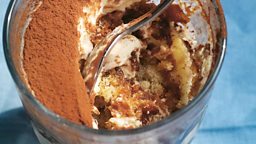Rasgullas with Mascarpone Ice Cream and Espresso Caramel
Jikoni: Proudly Inauthentic Recipes from an Immigrant Kitchen by Ravinder Bhogal (Bloomsbury)
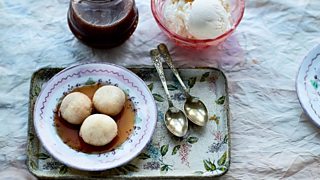
Photography © Kristin Perers
Rasgullas are sweet milk-and-cheese dumplings from Bengal that are poached in sugar syrup. If you ask a Bengali what they like – aside from famed poet Rabindranath Tagore – they are likely to say rasgullas. Purists should avert their eyes now, as I have taken great liberties with the traditional recipe. But if, like me, you love the boozy caffeinated flavours of tiramisu, you will love this dessert.
1 litre whole milk 2 tbsp lemon juice 500g caster sugar
2 tsp instant espresso granules, mixed with 100ml boiling water
For the ice cream
1 litre whole milk 90ml marsala
1 vanilla bean, split and seeds scraped
250g caster sugar 8 egg yolks
750g mascarpone
For the caramel
300g caster sugar 100g liquid glucose
70ml brewed espresso coffee 80ml double cream
70g unsalted butter, diced
• First make the ice cream. Put the milk, marsala and the vanilla pod and seeds into a saucepan and bring to a simmer, then remove from the heat. In a heatproof bowl, whisk together the sugar and egg yolks until pale, then slowly add the milk mixture, whisking constantly. Pour the custard back into the saucepan and stir over low–medium heat until it thinly coats the back of a wooden spoon. Strain back into the bowl. In another bowl, whisk the mascarpone to soften, then gradually add the custard, whisking until smooth and well combined. Refrigerate until completely cold, then transfer to an ice-cream machine and churn according to the manufacturer’s instructions.
• Meanwhile, make the caramel. Put the sugar, liquid glucose and 100ml of water into a saucepan and stir over medium–high heat until the sugar dissolves. Bring to the boil and cook, without stirring, until you have
a dark caramel. Take off the heat, then carefully (it will spit!) add the espresso and 50ml of water and return to the heat. Add the cream and butter, whisking to combine, then simmer until you have a thick syrup. Set aside.
• Next make the paneer for the rasgullas. Pour the milk into a saucepan and bring to the boil, then take off the heat and slowly pour in the lemon juice, stirring all the time. It should begin to curdle immediately. Leave to stand for 20 minutes. Tip the curds into a muslin-lined sieve set over a bowl, letting the whey drain through. Discard the whey. Rinse the curds well under cold running water, then gather the muslin in your hands and squeeze out any excess liquid. Place the curds in a bowl and knead for
6 minutes or until they start to clump together into a mass.
• Now you need to make two syrups for the rasgullas. For the espresso syrup, place half the sugar and the espresso mixture in a small saucepan, along with 150ml of water. Place over medium heat, stirring to dissolve the sugar, then simmer for 10 minutes or until thickened. Remove from
the heat and set aside. For the sugar syrup, put the remaining 250g of sugar into a shallow saucepan with 500ml of water. Place over medium heat and simmer for 10 minutes, stirring to dissolve the sugar.
• Divide the curds into 12 equal balls of around 10g each. Roll each one between your palms until it is tight and very smooth, ensuring there are no cracks in the surface.
• Lower half the rasgullas into the pan of gently simmering sugar syrup, cover with a lid, and cook for 12 minutes or until spongy – they will expand. Remove using a slotted spoon and place in a dish, making sure they are not touching. Repeat with the rest of the rasgullas. Once they are all cooked, pour over the espresso syrup and leave to cool, then refrigerate for a minimum of 4 hours.
• Gently reheat the espresso caramel, then serve the rasgullas with the mascarpone ice cream and the warm espresso caramel.
More Food on the Βι¶ΉΤΌΕΔ
-
![]()
Browse our selection of recipes from top chefs, cooks and food writers who have joined us on Woman's Hour...
-
![]()
Download this interview, or subscribe to the Cook the Perfect...downloads
-
![]()
Browse over 13,000 recipes on the Βι¶ΉΤΌΕΔ Food website
